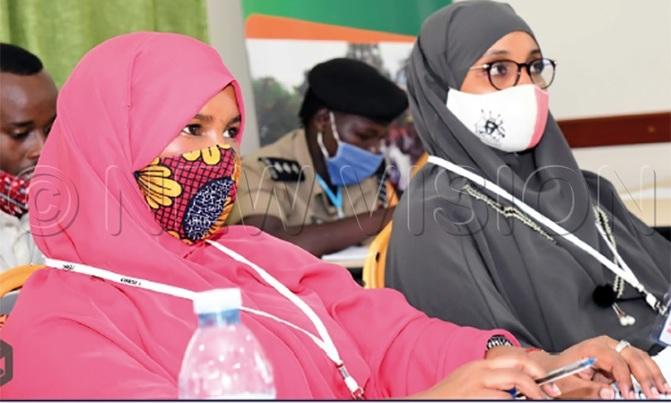Africa-Press – Uganda. COVID-19 | REFUGEES | As the country enters into a more serious phase of COVID-19, many refugee communities in Uganda still believe in various myths and negative perceptions about the pandemic, which scholars fear if not tackled, many lives are at high risk.What research saysA recent study conducted by Makerere University researchers among refugee communities in Uganda has found that compliance was still low. It is steadily declining because many still believe in myths circulated on social media.Another section of refugees, both living in urban and rural settlements, hold myths that the coronavirus is not real and instead believe that it is a fabrication of scientists and politicians.Others say Africans have a special immunity against COVID-19.”Majority of the communities have not fully bought into the seriousness of COVID-19 and think it is not only a joke but a political and monetary ploy advanced by politicians, some scientists, and supremacists or population control enthusiasts, which need to be addressed,” Dr Denis Muhangi, a senior lecturer at Makerere University, said.Other communities still carry the trust that their religious faiths will protect them against the pandemic and, therefore, ignore the standard operating procedures (SOPs).The research, covering five nationalities, was carried out in Kisenyi, a slum of Kampala with the highest number of refugees of various nationalities, Kyaka II in Kyegegwa district and 11 settlements in Adjumani district, West Nile.Case studyAt least 2,092 people were engaged in the study code-named ‘Refugee Lived Experiences, Compliance and Thinking’, conducted in collaboration with the Agency for Co-operation and Research in Development, Gulu University, Lutheran World Federation, the National Association of Social Workers of Uganda, and the Ministry of Health.Sharing the outcome of the study titled, Knowledge, adherence and the lived experiences of refugees in COVID-19, a comparative assessment of urban and rural refugee settings in Uganda at G-One Hotel on Rubaga Road in Kampala on Monday, Muhangi noted that COVID-19 compliance levels among refugees were going down despite the increasing number of deaths and infections.Laxity in enforcementMuhangi said enforcement of COVID-19 guidelines was found to be on the decline, although the declining trend was not as steep as the observed non-compliance.Among the issues the researchers noted was that the majority of the refugee communities were well informed about COVID-19, although up to 40% were found to have knowledge gaps on the nature, transmission, symptoms, and dangers of the pandemic.It also revealed that a large number, between 1% and 40%, adopt at least one risk behaviour likely to lead to transmission of the virus, including related to hygiene, congestion, and physical activity. The researchers were perturbed by findings that men were more knowledgeable about the virus than women and children yet women were more compliant than men.Mask sharingThere was also inappropriate use of masks in some of the study sites, including sharing of masks, and only wearing them when the refugees meet the Police.Some COVID-19 preventive measures were found not feasible among the refugees such as social distancing due to congested residential houses.Others are culture and deeply entrenched social-cultural norms, which he said remain a barrier to compliance.The study also revealed that while the Government and other actors had provided information about the virus, children and vulnerable groups such as the elderly and people with disabilities had been left out.What Somali saysSheikh Ahmed Musa, the chairperson of United Somalis of Uganda, said they have been giving warning messages about COVID-19 to their communities but many do not take them seriously.He said three Somalis had died due to the virus and several others were sick.Musa added that they had found it hard to discourage them from cultural practices such as eating together and hugging.
all news






